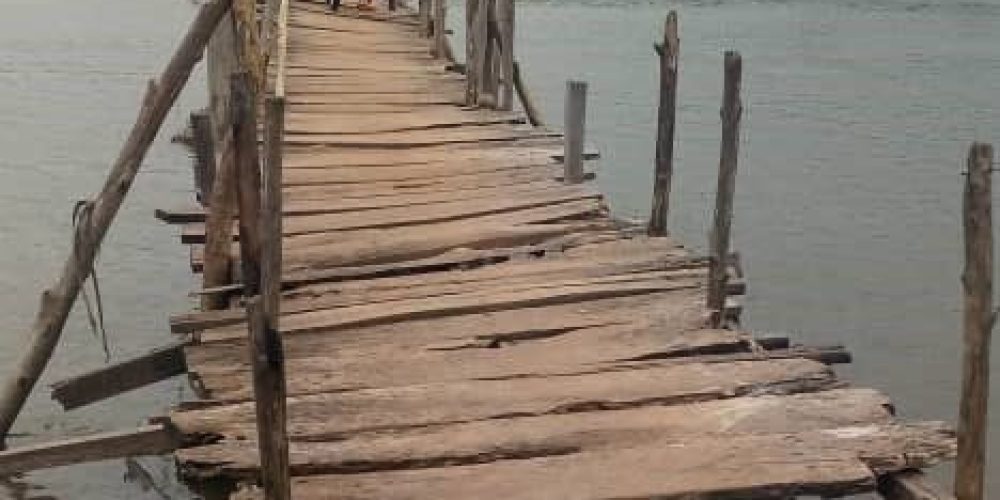In the heart of Lokomasama Chiefdom lies the village of Katic Wallah, my hometown, a place that is hosting over one thousand people. For generations, the residents of this village have faced the numerous challenges of crossing a river to access their homes, schools, and farms. The river, a vital lifeline for the community, has also been a source of danger, as crossing it required the use of canoe boats, an inherently risky endeavor.
Particularly the school going pupils who always used this way to their secondary school. The journey was not only arduous but was fraught with uncertainty. Students often arrived late to school, their education disrupted by unreliable availability of the canoe paddler, who at times showed little concern for the pressing needs for the pupils.
On the rainy days, the situation was even more serious, as the young students would be drenched while waiting for the canoe, risking their health and wellbeing.
Recognizing the risky nature of these crossings, the youth and elders of Katic Wallah, in a remarkable display of communal effort, came together to build a wooden bridge. This bridge, constructed with limited resources and boundless determination, has served the village faithfully for the past two years. It has been a symbol of hope and unity, reducing the risks that once loomed large over every crossing.
However, this bridge, once a sign of safety, is now close to falling apart. During a recent visit to see my mother, I saw for myself how unsafe this important structure has become. The wooden boards make worrying noises with every step, and the whole bridge shakes when people walk on it. It’s clear that the lives of Katic Wallah’s residents are once again in danger, as the bridge is nearly ready to collapse.
The people of Katic Wallah have not been silent about their plight. They have repeatedly appealed to local politicians, community leaders, and government officials for assistance in constructing a modern, durable bridge. Unfortunately, their pleas have fallen on deaf ears, with promises made during election periods evaporating once the votes have been cast.
This situation is not just a matter of inconvenience; it is a matter of life and death. The dilapidated bridge poses a grave threat to the safety of every person who crosses it. School pupils, farmers, and elders alike are forced to gamble with their lives each day, hoping that the bridge will hold just a little longer.
The government and those in positions of authority cannot afford to ignore this issue any longer. The people of Katic Wallah deserve better than empty promises and delayed action. They deserve a bridge that reflects their resilience and determination, a bridge that ensures their safety and allows them to thrive.
This is a call to action. The time for political rhetoric has passed. It is time for those who have pledged to serve the people to fulfil their promises. The construction of a modern bridge in Katic Wallah is not a luxury; it is a necessity. It is a matter of protecting lives and preserving the dignity of a community that has already endured so much.
As we continue to strive for progress and development in Sierra Leone, let us not forget the people of Katic Wallah and the bridge that stands as a testament to their spirit. Let us come together, just as they did, to ensure that this vital lifeline is rebuilt before it is too late. The people of Katic Wallah are waiting, and their safety depends on our collective action.





